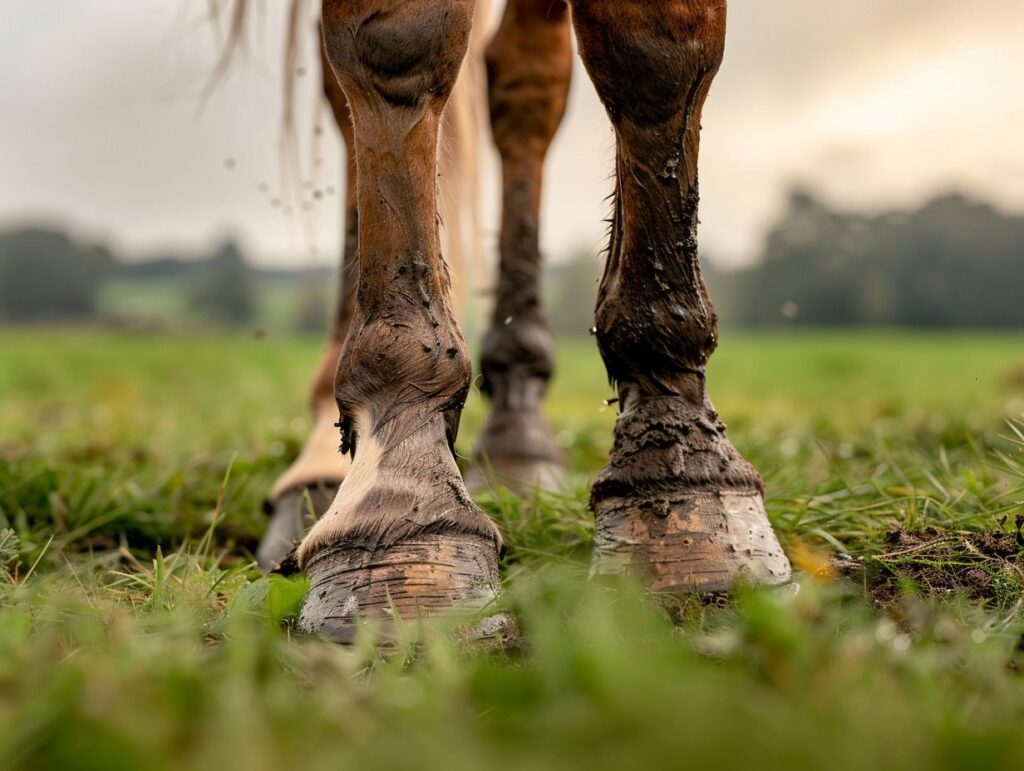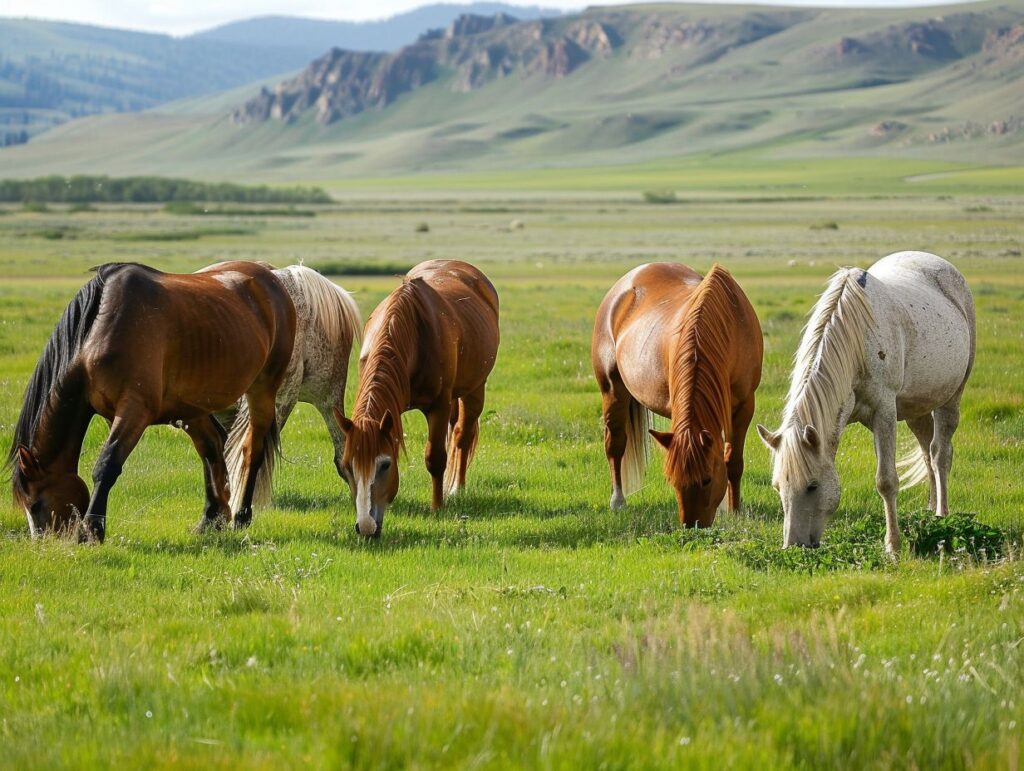If you are a horse owner, it is crucial to prioritize the well-being and happiness of your equine companion. One aspect of horse care that is often underestimated is hoof health.
This detailed article will delve into the importance of hoof health for horses, common indicators of hoof issues to monitor, the impact of nutrition on maintaining robust hooves, the various types of hoof supplements on the market, and the appropriate timing for introducing a supplement into your horse’s diet.
Keep reading to discover how to select the optimal hoof supplement for your cherished horse.
Understanding Hoof Health
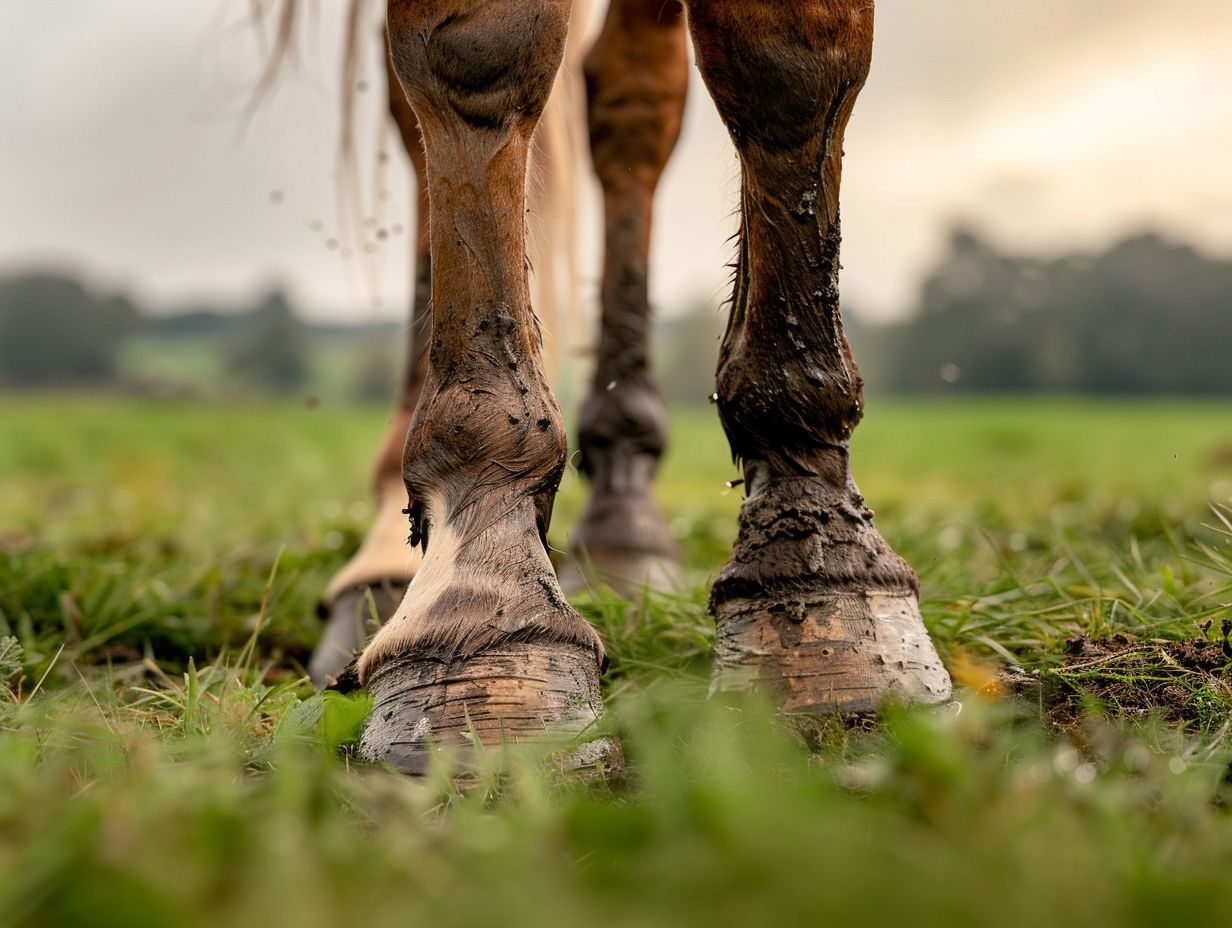
Understanding Hoof Health is essential for maintaining the overall well-being of your horse. Proper hoof care and nutrition play a significant role in ensuring your horse’s hooves are healthy and strong, enabling them to lead a comfortable and active life.
The Importance of Hoof Health for Horses
Maintaining the hoof health of your horses is crucial for their overall well-being and performance. Healthy hooves are essential for your horse’s mobility, comfort, and capability to engage in various activities.
If proper hoof care is neglected, horses can experience common issues such as cracks, weaknesses, and infections, leading to pain and lameness. The health of the hooves directly impacts the quality of life of your horse, affecting their movement and ability to carry out daily tasks.
By ensuring they receive adequate nutrition, regular trimming, and practicing good hygiene, you can prevent many hoof problems and encourage the development of strong, resilient hooves. The condition of your horse’s hooves serves as a reflection of their overall health, underscoring the importance of prioritizing hoof care as an integral part of a comprehensive equine wellness regimen.
Signs of Hoof Problems
Identifying signs of hoof problems in your horse is imperative for prompt intervention and treatment. Hoof issues can present themselves in a variety of manners, ranging from observable cracks and chips to instances of lameness and discomfort while in motion.
Identifying Common Hoof Issues
Common hoof issues in horses that you should be aware of include cracks, thrush, and abscesses, all of which have the potential to affect the horse’s comfort and mobility. To effectively address these issues, it is important to make use of proper hoof care products and natural hoof supplements.
Cracks in a horse’s hoof can develop due to various factors, such as dry conditions or improper trimming, resulting in discomfort and potential lameness. Thrush, a prevalent bacterial infection, thrives in moist environments and can lead to a foul odor and softening of the hoof tissue. On the other hand, abscesses are pockets of infection that can cause significant pain and lameness.
To improve hoof health and prevent these issues, it is recommended that you incorporate natural remedies like tea tree oil or apple cider vinegar into your hoof care routine, in addition to regular trimming and the application of hoof moisturizers. These measures can make a significant difference in maintaining the health of your horse’s hooves.
The Role of Nutrition in Hoof Health
Nutrition plays a crucial role in maintaining optimal hoof health in horses. A well-balanced diet, abundant in essential nutrients, is necessary for fostering strong hooves and overall well-being.
Key Nutrients for Strong Hooves
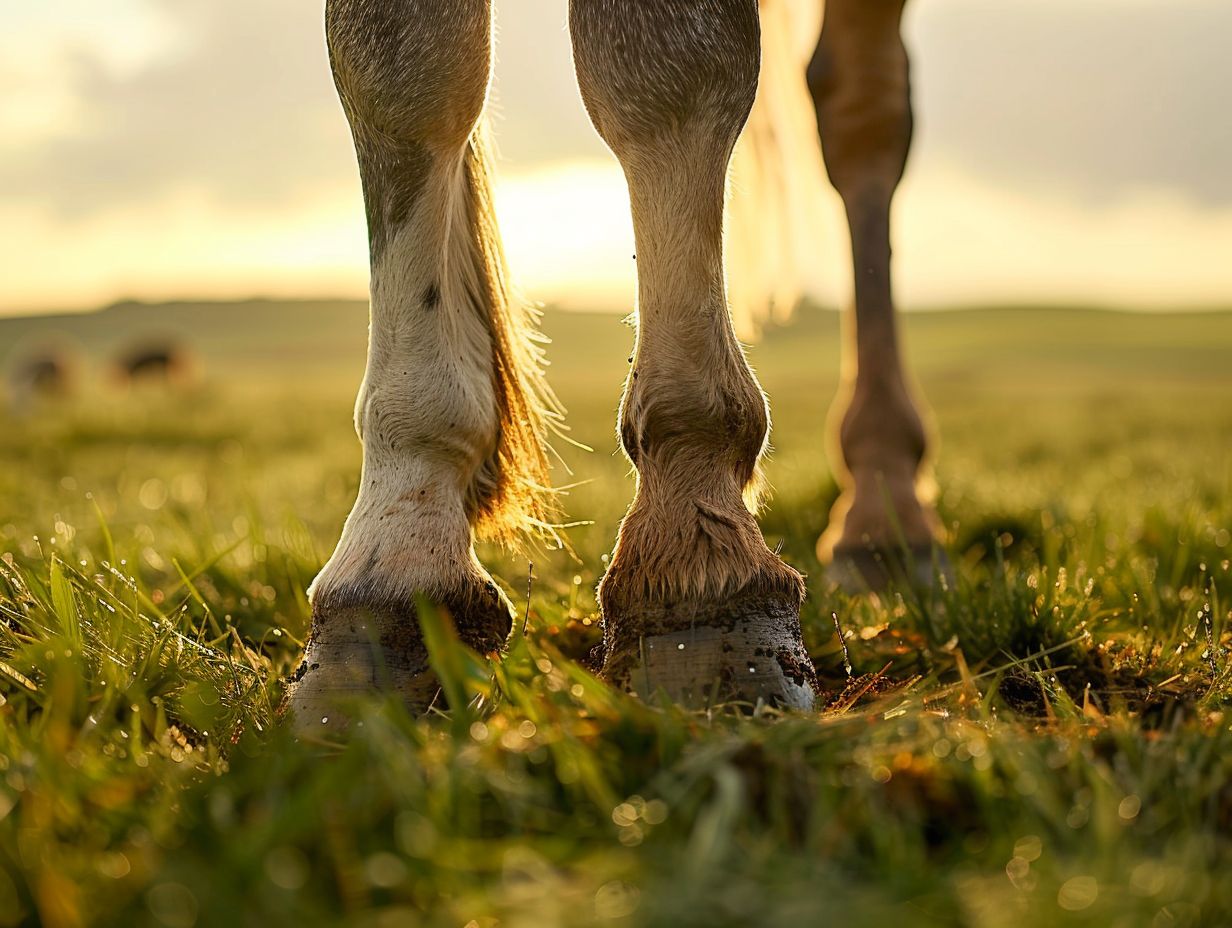
Ensure that your horses maintain optimal hoof health by providing them with essential nutrients like biotin, zinc, and omega-3 fatty acids. These nutrients are crucial in promoting hoof strength and growth.
Biotin, a B-vitamin, is renowned for its role in enhancing keratin production, which is vital for the structural integrity of hooves. Likewise, zinc supports hoof tissue development by aiding in the formation of keratinocytes. Omega-3 fatty acids have anti-inflammatory properties that can help prevent conditions such as laminitis, thereby contributing to overall hoof health.
Maintaining the correct balance of these nutrients in your equine’s diet is key to supporting proper hoof growth, strength, and resilience against common hoof issues.
How Diet Can Affect Hoof Health
The diet of your horse directly impacts the health and quality of its hooves. A balanced and nutritious equine diet is crucial for ensuring strong hooves, proper growth, and overall well-being.
Nutrients such as biotin, zinc, and omega-3 fatty acids play a significant role in hoof health, aiding in hoof strength and promoting proper hoof growth. Deficiencies in these essential nutrients can lead to weak, brittle hooves that are more susceptible to issues like cracks and infections.
By providing a diet rich in these key nutrients, horse owners can support the development of healthy hooves that are resilient and less prone to common hoof problems. Ensuring a well-rounded diet for horses is paramount in maintaining their overall hoof condition and supporting their long-term well-being.
Types of Hoof Supplements
There are several types of hoof supplements available for horses, such as those containing biotin, methionine, and minerals. Natural hoof supplements have become increasingly popular due to their positive impact on hoof health and overall well-being.
Different Forms and Ingredients
When considering hoof supplements for your horse, it is important to note that they come in various forms, such as pellets, powders, and liquids. Each form contains different combinations of ingredients aimed at supporting hoof health. By comparing the types, ingredients, and costs, horse owners can make an informed decision on the most appropriate supplement for their equine companions.
Pellet-based hoof supplements typically contain essential ingredients like biotin, methionine, and zinc, which are recognized for their role in promoting hoof growth and strength. Conversely, powders may include silica, copper, and lysine, focusing on improving hoof quality. Liquids, which often contain omega-3 fatty acids and amino acids, are easily absorbed and beneficial for horses facing hoof issues. Understanding these ingredient variations and forms can assist horse owners in selecting supplements that cater to their horses’ specific needs, while also considering effectiveness and budget constraints.
When to Consider a Hoof Supplement
Determining the appropriate time to introduce a hoof supplement for your horse hinges on factors like its diet, hoof condition, and growth rate. Familiarizing yourself with the correct supplementation dosage and recommendations can enhance hoof growth and maintenance.
Factors to Consider for Your Horse

When considering a hoof supplement for your horse, you should take into account factors such as their age, activity level, and existing hoof issues. It is important to determine the appropriate supplement dosage and integrate it into a regular hoof maintenance routine to enhance hoof support and overall health.
Age plays a crucial role in determining the specific nutritional needs of a horse, which in turn affects the efficacy of the hoof supplement. Similarly, the activity level of the horse, whether it is a competitive athlete or a leisurely companion, will have an impact on the dosage requirements. Assessing the current hoof condition, including signs of weakness or cracking, is crucial for selecting the right type of supplement that targets these specific issues.
By incorporating hoof supplements into a comprehensive maintenance plan, horse owners can ensure consistent support and promote optimal hoof health.
Choosing the Right Hoof Supplement
When selecting the appropriate hoof supplement for your horse, it is important to assess factors like the reputation of the brand, the quality of ingredients, and the effectiveness of the supplement. By comparing various types and brands of supplements, you can make a well-informed decision to improve your horse’s hoof health.
Factors to Consider When Selecting a Supplement
When you are choosing a hoof supplement, it is important to take into account factors such as cost-effectiveness, recommended dosage, and existing research on the supplement’s effectiveness. Having a good grasp of these elements can assist horse owners in selecting the most appropriate supplement for their horse’s hoof health requirements.
Cost-effectiveness is a critical aspect of long-term hoof health management, as it determines the sustainability of integrating the supplement into a horse’s regular routine. It is crucial to adhere closely to dosage recommendations, as improper administration could result in ineffective outcomes or even adverse effects. Scientific research that supports the supplement’s effectiveness serves as a key indicator of its potential advantages. By carefully considering these factors, horse owners can make well-informed decisions that prioritize their horse’s hoof health and overall well-being.
Frequently Asked Questions
Does my Horse need a hoof supplement?
If your horse has healthy and strong hooves, then it may not need a hoof supplement. However, if your horse has weak or brittle hooves, a supplement may be beneficial.
What should I look for in a hoof supplement?
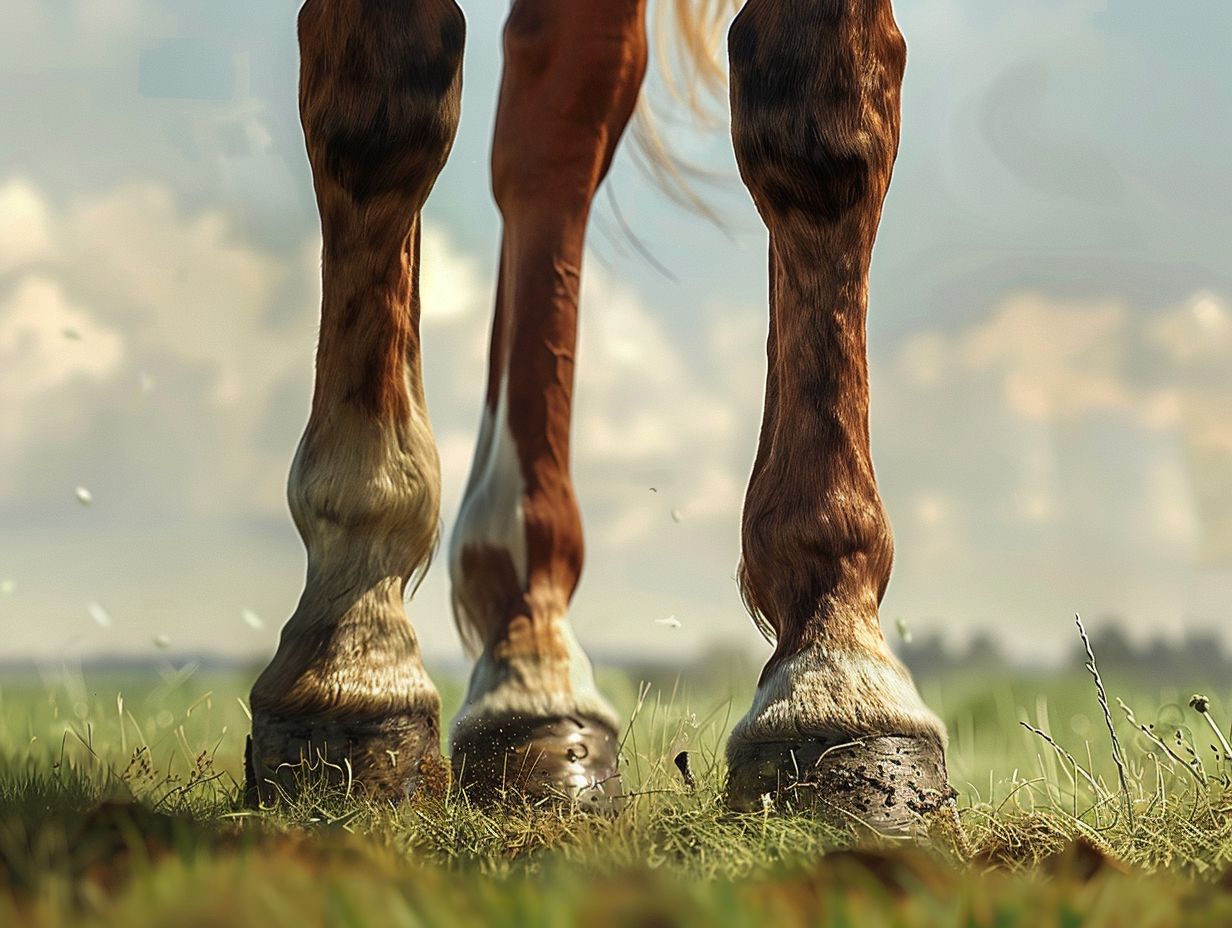
When choosing a hoof supplement, look for ingredients such as biotin, methionine, and zinc, as these have been proven to support hoof health.
Can I just feed my horse a balanced diet instead of using a hoof supplement?
A balanced diet is essential for overall horse health, but sometimes a horse’s diet may lack certain nutrients that support hoof growth. In these cases, a hoof supplement can provide the necessary nutrients for healthy hooves.
How long does it take to see results from a hoof supplement?
Results can vary, but typically it takes 6-9 months for a hoof supplement to show significant improvement in hoof health. Consistency and patience are key in seeing results.
Can I give my horse too much of a hoof supplement?
Yes, it is possible for a horse to have too much of certain vitamins and minerals, so it is important to carefully follow the recommended dosage on the supplement and consult with a veterinarian if you have concerns.
Are there any side effects of using a hoof supplement?
In general, hoof supplements are safe for horses, but some may experience mild side effects such as an upset stomach or changes in coat or hoof quality. If you notice any concerning changes, stop use and consult with a veterinarian.
